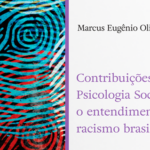Wagner Teles de Oliveira, State University of Feira de Santana (UEFS), Feira de Santana, BA, Brazil
For Wittgenstein, logical necessity is an instituted necessity. The main task of this perspective is to maintain the autonomy of logic to experience. This is a challenge common to both the texts on certainty and Wittgenstein’s philosophy of psychology, in which his thought denies being a psychological investigation.
In this context, Wittgenstein is discussing questions that can be approached from the point of view of psychology or some other science. So when he says this is not a psychological investigation, he is defending a methodological perspective for his philosophy. These ideas are extensively discussed in a recent article from the journal Trans/Form/Ação (vol. 47, no. 3, 2024), titled Logic and Facts in Wittgenstein.
A practical concept of meaning opens up the possibilities of logical investigation into certainty and psychological notions because this concept allows us to understand that the practical use of words guides the determination of meaning. There is no logical structure for determining meaning on the one hand, and activities guided by this structure on the other. The praxis is regulated, but it speaks for itself.

Image: Ben Richards.
In a methodological sense, the practical conception of meaning makes it possible to analyze psychological expressions from the point of view of logic. In a conceptual sense, it makes it possible to ascribe objectivity to linguistic expressions about mental phenomena, and allows us to understand the logical reasons for certainty about the inner and outer worlds.
Wittgenstein considers that the essence of the soul is the object of logical investigation. This essence is constructed pragmatically from the drafting of the concepts used to express and understand psychological acts and mental states. From this point of view, it is important to understand rules as justified by the form of action.
Rules have no value in isolation from practice. They express the determination of a reference system to which they belong. This system is built up gradually and works in contact with experience. It can, therefore, be adapted to new circumstances, but it can also be changed.
Linguistic understanding and knowledge depend on the assimilation of the reference system that structures the thought and action of a particular linguistic community. This structure enjoys relative autonomy from facts, but it’s not indifferent to experience.
These ideas make us think about the logic of language in a very peculiar way. Wittgenstein is aware of these philosophical consequences. That’s why he says that all this is about to turn logic into an absurdity.
To read the article, access
OLIVEIRA, W.T. A lógica e os fatos em Wittgenstein. Trans/Form/Ação [online]. 2024, vol. 47, no. 3, e02400218 [viewed 19 November 2024]. https://doi.org/10.1590/0101-3173.2024.v47.n3.e02400218. Available from: https://www.scielo.br/j/trans/a/HjbLSMhgn36zQLHdfCCKbFF
References
DONAT, M. Expressividade e Representação no Jogo de Linguagem das Sensações. Guairacá – Revista de Filosofia [online]. 2022, vol. 38, no.1, pp. 16-27 [viewed 19 November 2024]. https://doi.org/10.5935/2179-9180.20220002. Available from: https://revistas.unicentro.br/index.php/guaiaraca/article/view/7348
MORENO, A.R. Pensamento e Realidade: em direção a uma pragmática filosófica. In: MORENO, A. R. (org.). Wittgenstein: Aspectos Pragmáticos. Campinas: Centro de Lógica, Epistemologia e História da Ciência, 2007, vol. 49, pp. 55-94.
WITTGENSTEIN, L. On Certainty. New York: Harper Torchbookz, 1972.
External Links
Trans/Form/Ação – Journal: Instagram | Facebook | Academia.edu
Desafios filosóficos do pensamento de Wittgenstein
About Wagner Teles de Oliveira
He has a doctorate in philosophy from the Federal University of Bahia and is a research professor at Postgraduate Program in Teaching, Philosophy and History of Sciences at the Federal University of Bahia/State University of Feira de Santana.
Como citar este post [ISO 690/2010]:



















Recent Comments